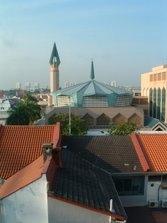
SEOUL: The craze over Korean pop culture in recent years has turned Seoul into one of Asia's top travel spots.
With a better global economic outlook, the South Korean capital is expecting another bumper year in visitor numbers in 2010.
However, with competition coming from other cities, Seoul is not resting on its laurels. Instead, the city is going the extra mile to make foreigners feel at home.
The subway ticket vending machines in Seoul are mutli-lingual wonders that "speak" in four languages - English, Mandarin, Japanese and Korean.
"I find the subway is easy to get around," said a Canadian visitor. "Once you are up the subway, there're always signs pointing you to the right direction. It's really great."
Street signs with English translation are seen everywhere, while information centres in many parts of the city are manned by multi-lingual staff.
But while Seoul has come a long way in transforming itself into a global metropolis, many foreigners still find it a challenge to get around the city.
"If you go into a store and you want to ask for information, they don't really understand you, so they'll speak to you in Korean and you'll speak to them in English, so it's a bit of a problem because you don't really get what you want out of your shopping experience," said a tourist.
One of the biggest problems for foreign visitors travelling in Seoul is the language barrier. Hence, tackling this issue has become the top priority for the Seoul government.
With its hi-tech society and well-educated population, there is no surprise that officials are turning to new technology to better serve travellers in 2010.
"When (tourists) land in Incheon International Airport or Gimpo Airport, they can get a gadget free of charge," said Samuel Koo, chief executive officer of Seoul Tourism Organisation. "The device has several functions rolled into one. It's a walking navigation, so it'll show streets where ever you may go."
Beyond the official domain, many shops across the city are also doing their bit to keep up - by training their service personnel to speak in other languages.
"At Dongdaemum Market, there are a growing number of foreign customers, especially from Japan, Taiwan, Thailand, and Singapore," said An Myong Hun, a sales assistant at Nalgae and Gomangi.
"In order to cater to such customers, we have one employee who can speak English, and one who can speak Japanese at this very shop. Many employees at Dongdaemum Market are learning foreign languages for the same reason."
With many Asian cities competing for the tourism dollar, officials know that Seoul must constantly update itself to attract visitors.
Source

No comments:
Post a Comment